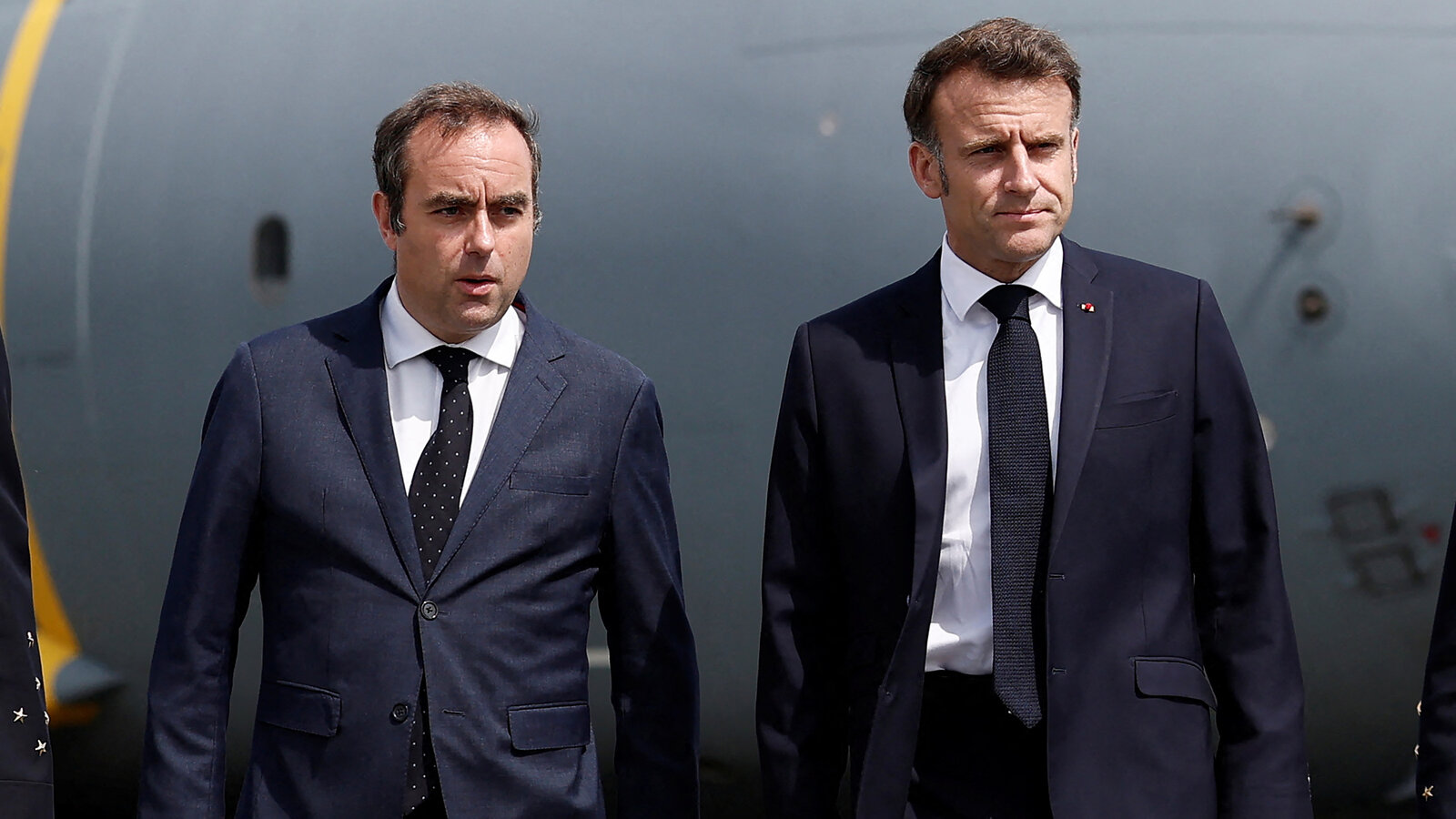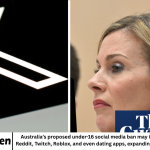France has entered a dramatic new political chapter after President Emmanuel Macron announced the appointment of Sébastien Lecornu as the country’s new Prime Minister. The decision comes in the wake of a sudden government collapse, fueled by weeks of political infighting, growing public dissatisfaction, and mounting pressure from both opposition parties and the French electorate. This historic move could redefine the trajectory of Macron’s presidency and reshape the broader political landscape of France.
- The Context of the Government Collapse
- Who is Sébastien Lecornu?
- Macron’s Strategy Behind the Appointment
- Public Reaction to the Appointment
- Challenges Facing the New Prime Minister
- Restoring Public Trust
- Managing Economic Pressures
- Navigating European Politics
- Containing Political Opposition
- Historical Significance of the Appointment
- Expert Opinions on Lecornu’s Prospects
- The Road Ahead for Macron and Lecornu
- FAQs
- Who is Sébastien Lecornu, the new French Prime Minister?
- Why did the French government collapse?
- What challenges will Sébastien Lecornu face as Prime Minister?
- How has the public reacted to Macron appointing Lecornu?
- Could Lecornu be Macron’s successor in the future?
- Conclusion
The Context of the Government Collapse
The collapse of Macron’s government did not come as an overnight surprise. For months, the French administration faced challenges ranging from divisive pension reforms to growing unrest over the cost of living crisis. The streets of Paris and other major cities frequently became battlegrounds between protesters and security forces, with unions leading massive demonstrations that often brought the country to a standstill.
At the heart of the collapse was the erosion of trust between Macron’s centrist alliance and the wider population. Polling data suggested that approval ratings for the government had sunk to historic lows, with fewer than 30 percent of citizens expressing confidence in the administration’s ability to manage the country. This distrust translated into growing pressure on ministers, whose inability to find common ground on key policy issues eventually forced Macron’s hand.
The government’s resignation en masse reflected both political exhaustion and a recognition that the current leadership could no longer carry out Macron’s reformist vision. It was within this context that Macron turned to Sébastien Lecornu, a figure known for loyalty, pragmatism, and a reputation for crisis management.
Who is Sébastien Lecornu?
Sébastien Lecornu, though relatively young at 38, has long been regarded as one of Macron’s most trusted allies. He began his career in local politics before rising through the ranks of the national stage. Most recently, he served as Minister of the Armed Forces, where he oversaw France’s military operations during a particularly tense period for European security amid Russia’s ongoing war in Ukraine.
Lecornu’s tenure at the Ministry of the Armed Forces earned him both praise and criticism. Supporters lauded his ability to modernize the defense sector, manage complex alliances with NATO, and advocate for increased European military cooperation. Critics, however, argued that his pragmatic approach sometimes lacked boldness, particularly in addressing structural issues within the French armed forces.
Nevertheless, Lecornu’s loyalty to Macron has been unwavering. In a political climate where allies often drift away under pressure, Lecornu remained steadfastly aligned with the President’s agenda, making him a natural choice for the Prime Minister’s role. His appointment symbolizes continuity but also a fresh attempt at regaining stability.
Macron’s Strategy Behind the Appointment
President Macron’s choice of Lecornu carries deep strategic implications. Analysts suggest that Macron sought a Prime Minister who could balance competence with loyalty, while also appealing to younger generations of French citizens. Lecornu, representing a new wave of political leadership, reflects Macron’s desire to inject fresh energy into a government weighed down by fatigue and controversy.
By appointing someone with defense credentials, Macron may also be signaling a renewed emphasis on national security and international affairs. At a time when Europe is grappling with war on its borders, the rise of far-right movements, and instability in global markets, having a leader with strong defense experience could reassure both domestic and international audiences.
Additionally, Macron’s decision underscores his pragmatic approach. Rather than choosing a high-profile political heavyweight from within his party or seeking a compromise with opposition groups, he opted for a trusted lieutenant who can execute his vision without distraction. This move, however, carries risks, as it could deepen accusations of centralization and overreliance on loyalists rather than consensus-building.
Public Reaction to the Appointment
The French public has greeted Lecornu’s appointment with a mixture of cautious optimism and skepticism. Some citizens view him as a competent administrator who could bring much-needed stability after months of turmoil. Others, however, see the appointment as a continuation of Macron’s insular leadership style, where decisions are made without broad public consultation or parliamentary compromise.
In Paris, reactions among political commentators have been sharp. The left-wing opposition criticized Macron for failing to seek a broader coalition, arguing that Lecornu’s appointment represents “business as usual” rather than a genuine response to the government’s collapse. Meanwhile, far-right leaders accused Macron of clinging to power by surrounding himself with loyalists instead of addressing the real frustrations of ordinary citizens.
A recent snap poll conducted after the announcement revealed that only 42 percent of respondents believed Lecornu would be able to restore stability, while 38 percent expressed outright doubt. This illustrates the uphill battle he faces in convincing the French people that he is more than just a loyal servant of Macron’s ambitions.
Challenges Facing the New Prime Minister
As Lecornu steps into office, he inherits one of the most difficult political environments in recent French history. His challenges are both immediate and long-term.
Restoring Public Trust
The collapse of the previous government was fundamentally rooted in public distrust. Lecornu must now find ways to reconnect with citizens, particularly those who feel abandoned by Parisian elites. His ability to engage with unions, grassroots organizations, and local communities will be critical in bridging this divide.
Managing Economic Pressures
France continues to grapple with inflation, high energy costs, and economic stagnation. Lecornu will need to introduce policies that address the cost-of-living crisis while balancing fiscal responsibility. Failure to deliver tangible improvements in people’s lives could quickly erode any goodwill he may initially enjoy.
Navigating European Politics
On the international stage, Lecornu must maintain France’s leadership within the European Union while managing relations with key partners such as Germany, the United States, and the United Kingdom. His defense background gives him credibility in discussions on security and defense, but he must also prove adept in economic and diplomatic negotiations.
Containing Political Opposition
The French Parliament remains fragmented, with no single party holding an absolute majority. This means Lecornu will face significant resistance in passing major reforms. His skills as a negotiator will be tested as he attempts to build coalitions on an issue-by-issue basis.
Historical Significance of the Appointment
Lecornu’s appointment is not only about immediate governance but also about shaping France’s political trajectory. Macron, who cannot seek re-election in 2027, is already thinking about his legacy. By positioning Lecornu at the helm, Macron may be subtly grooming him as a potential successor who could carry forward the centrist project in a future presidential race.
Historically, French politics has seen prime ministers rise to prominence as national leaders. From Jacques Chirac to Lionel Jospin, the role of Prime Minister has often been a stepping stone to the presidency. Lecornu now joins this tradition, with the potential to become a central figure in the years ahead.
Expert Opinions on Lecornu’s Prospects
Political analysts remain divided on whether Lecornu can succeed where his predecessors failed. Jean-Marc Dumont, a political scientist at Sciences Po, argues that “Lecornu has the administrative skills and the loyalty to Macron, but what he lacks is a popular mandate. His biggest test will be convincing citizens that he represents change, not continuity.”
Meanwhile, journalist Claire Fontaine highlights the symbolism of the appointment: “By choosing a defense minister as Prime Minister, Macron is preparing France for an era where security, stability, and European unity will dominate the agenda. Lecornu is well-suited for that mission, but he must also master domestic policy, where his experience is limited.”
These perspectives underscore the uncertainty surrounding Lecornu’s future, even as he steps into one of the most powerful roles in French politics.
The Road Ahead for Macron and Lecornu
The partnership between Macron and Lecornu will be crucial in determining whether France can regain political stability. Their ability to cooperate seamlessly will shape not only the remainder of Macron’s presidency but also the long-term future of the centrist movement in France.
If Lecornu can successfully navigate economic challenges, restore public trust, and assert France’s leadership on the international stage, his appointment could be remembered as a turning point. However, if he falters, the collapse of this government could mark the beginning of a deeper political crisis that reverberates into the 2027 elections.
FAQs
Who is Sébastien Lecornu, the new French Prime Minister?
Sébastien Lecornu is a French politician and loyal ally of President Emmanuel Macron. He previously served as Minister of the Armed Forces and has a background in both local and national politics. Known for his pragmatic leadership, he has now been appointed Prime Minister following the collapse of the French government.
Why did the French government collapse?
The government collapse was fueled by widespread public dissatisfaction, infighting within Macron’s centrist alliance, and mounting opposition to controversial reforms such as pension changes. The resignation of ministers signaled a loss of confidence in the administration’s ability to govern effectively.
What challenges will Sébastien Lecornu face as Prime Minister?
Lecornu will face challenges such as restoring public trust, addressing inflation and economic stagnation, managing France’s role in European and global politics, and navigating a fragmented parliament where passing reforms will be difficult.
How has the public reacted to Macron appointing Lecornu?
Public reaction has been mixed. Some view Lecornu as a capable administrator who can restore stability, while others see his appointment as evidence of Macron’s overreliance on loyalists. Polls show skepticism, with many French citizens unsure whether Lecornu can deliver meaningful change.
Could Lecornu be Macron’s successor in the future?
Many analysts believe Macron may be grooming Lecornu as a potential successor for the 2027 presidential election. The role of Prime Minister has historically been a springboard for future presidential candidates in France, and Lecornu’s appointment positions him as a central political figure moving forward.
Conclusion
The appointment of Sébastien Lecornu as France’s new Prime Minister represents both continuity and change at a critical moment in French politics. While Macron has chosen a trusted ally to stabilize his government, the road ahead is fraught with challenges that will test Lecornu’s leadership skills and political acumen. The success or failure of this new administration will not only shape the remainder of Macron’s presidency but could also define the trajectory of French politics for years to come.








